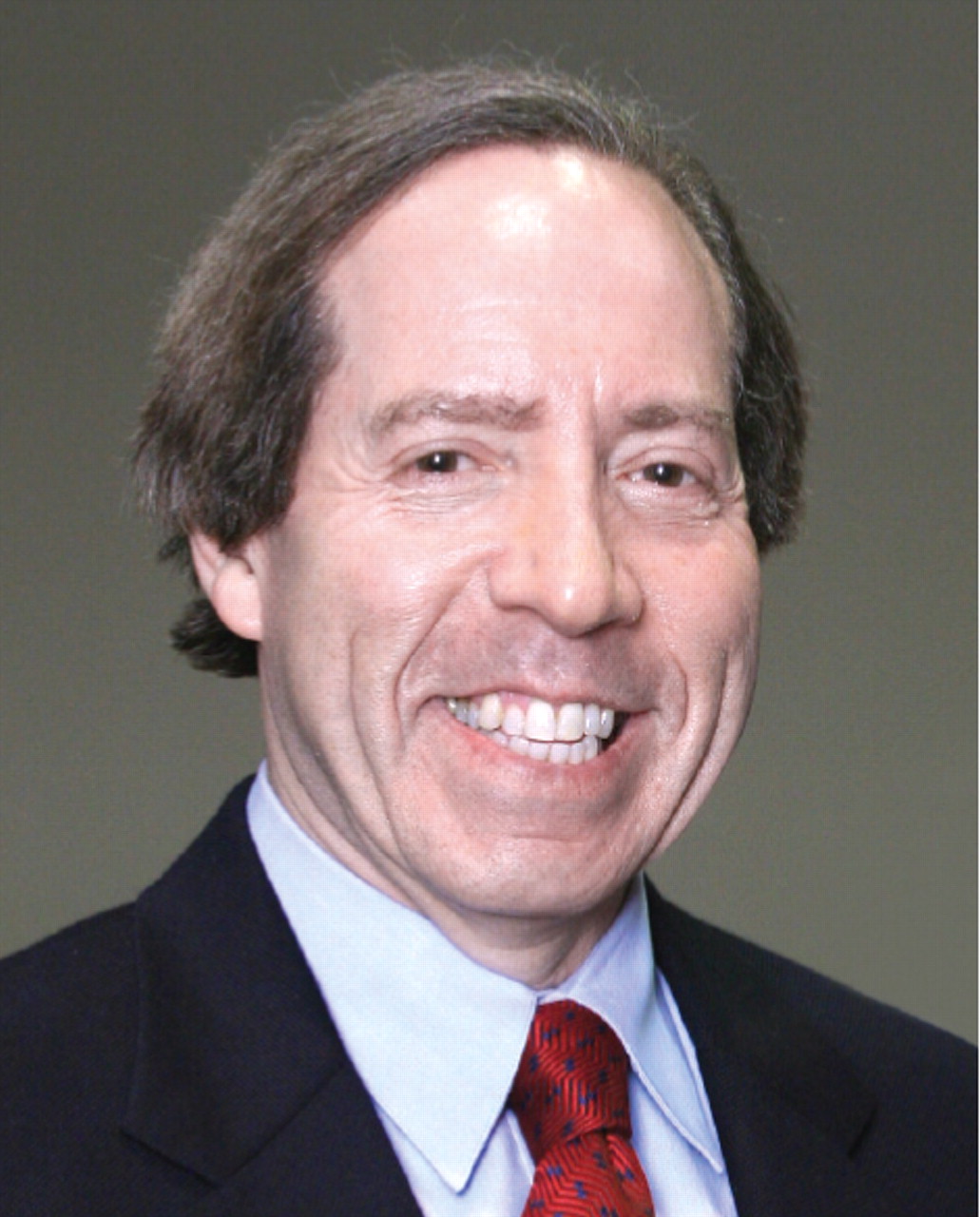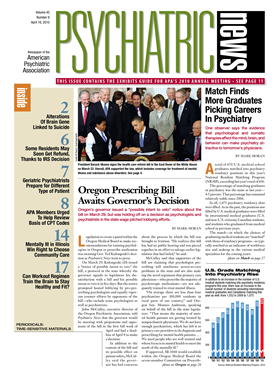The APA Area Councils have been hard at work and are all meeting this month to work on issues important to our members and patients. They will hear from and respond to needs and concerns of every district branch (DB), including diminished funding for patient care, scope of practice issues, and educational programs, along with other pressing matters. The members-in-training (MITs), early career psychiatrists (ECPs), minority/underrepresented group members (M/URs), and Assembly allied-organization liaisons (AAOLs) will also work on their constituents' needs along with other Assembly business.
In addition, our Public and Community Psychiatry Committee, chaired by Larry Miller, M.D., is compiling a list of CME presentations on this topic and focusing on sharing information on successful programs among all DBs.
The work groups I appointed have also been active. The Communication Work Group, chaired by Scott Benson, M.D., is working with each DB and the APA Council on Communications to achieve an APA-wide, vertically integrated network. The Model District Branch Work Group, chaired by Connie Powell, M.D., is assessing strengths and needs of each DB, sharing successful models, and working on collaboration guides and mutual projects.
The Leadership Training Work Group is chaired by Eliot Sorel, M.D., and Dr. Sorel wrote the following description of his group's efforts:
The mission of the Leadership Training Work Group (LTWG) is to develop a comprehensive set of optional training and mentoring expectations for new APA Assembly members, current members, and DB presidents-elect. Achieving this mission was to be done by using existing APA training resources and media and public-affairs instructions and by working through Area Councils to implement and monitor progress.
The LTWG membership is Robert Pyles, M.D. (Area 1), Glenn Martin, M.D. (Area 2), Eliot Sorel, M.D., chair (Area 3), Shastri Swaminathan, M.D. (Area 4), Priscilla Ray, M.D. (Area 5), Melinda Young, M.D. (Area 6), Jason Hunziker, M.D. (Area 7), Paul O'Leary, M.D. (MIT), Eric Williams, M.D. (M/UR), Hind Benjelloun, M.D. (ECP), and Rachael Glick, M.D. (AAOL).
Our team worked well together, via the Internet and conference calls, and developed a leadership training and mentoring model focusing on knowledge, skills, and attitudes in four well-integrated modules. The modules are orientation and governance, communications, finances and management, and advocacy and policy. We are grateful to the APA staff for their superb assistance with planning the conference calls and gaining access to existing APA training materials.
The LTWG believes that it would be useful to compare the content and process of the three work groups appointed by the speaker of the Assembly to maximize areas of integration in implementation; to define minimum resources needed for the same; to obtain feedback from those completing the training; and to review and revise annually, based on such feedback.
Leadership training is a process, not an event. Having started a career and leadership project for MITs and ECPs at the DB level in the Washington Psychiatric Society (WPS), and having had the opportunity to lead the Assembly LTWG, we believe it is essential that we provide these opportunities in all APA DBs and Area Councils. In Area 3, we will be expanding the MITs' and ECPs' career and leadership training used in the WPS to the New Jersey Psychiatric Association this spring and to other interested DBs in Area 3 later on. We are poised to assist any Area Council or DB that would be interested in launching its own Career and Leadership Project and leadership training initiatives.
Also, together with the Assembly speaker, we intend to convene the first leadership and mentorship forum during APA's annual meeting in New Orleans next month, a new platform for discussion of leadership training best practices and lessons learned from DBs and Area Councils across the United States and Canada. We hope that this process will continue in the future and that the Assembly Leadership and Mentorship Forum becomes an established tradition at the APA annual meeting, where existing and emerging APA leaders together will groom the next generation of our profession's leaders.


